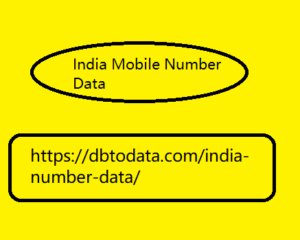Post by account_disabled on Mar 10, 2024 0:56:48 GMT -5
Despite geopolitical insecurities and fears of a possible recession, 2019 proved to be a fruitful year for the luxury industry . Even 2020, with the problems related to the spread of COVID-19, was not a particularly difficult year for this sector of the market. Key takeaways from the article: Luxury brands need to make their audience engagement strategies deeper and more meaningful The shortage of employees with skills in software development, social media and digital design risks representing a major unknown for the future of the luxury market Sustainability will be a fundamental value in the near future, and will affect all company processes transversally Online sales have not stopped growing and wealthy buyers , the reference target for this type of product, have adapted well to the new digital channels, widely used in recent times by sellers and buyers.
There is no denying that the traditional luxury market is also in the midst of an India Mobile Number Data epochal transformation. The digital transformation has led to a profound change in the ways and times of the market, and because of this this and many other sectors are now facing a real identity crisis. The new generations of buyers of luxury products are increasingly demanding and are evolving faster than the brands themselves sometimes do. In order not to lose ground, the latter will have to make their public engagement strategies deeper and more significant , offering a new range of personalized experiences and innovating business models and proposals, to better adapt to modern lifestyles and suggested market models from the digital revolution.

In this content we will see what trends will affect this sector for the new year. How luxury brands can attract new customers Luxury marketing: trends for 2021 Other trends to take into consideration for luxury marketing inbound-marketing-2020 How luxury brands can attract new customers To keep up with the competition in an increasingly competitive and continually expanding market, luxury brands must know the relevant trends from year to year. The luxury sector is not an easy sector to operate in. The evolution of channels and the parallel evolution of markets offer great earning opportunities but, on the other hand, global economic growth is overall slowing down and competition in the sector has become more fierce than ever.
There is no denying that the traditional luxury market is also in the midst of an India Mobile Number Data epochal transformation. The digital transformation has led to a profound change in the ways and times of the market, and because of this this and many other sectors are now facing a real identity crisis. The new generations of buyers of luxury products are increasingly demanding and are evolving faster than the brands themselves sometimes do. In order not to lose ground, the latter will have to make their public engagement strategies deeper and more significant , offering a new range of personalized experiences and innovating business models and proposals, to better adapt to modern lifestyles and suggested market models from the digital revolution.

In this content we will see what trends will affect this sector for the new year. How luxury brands can attract new customers Luxury marketing: trends for 2021 Other trends to take into consideration for luxury marketing inbound-marketing-2020 How luxury brands can attract new customers To keep up with the competition in an increasingly competitive and continually expanding market, luxury brands must know the relevant trends from year to year. The luxury sector is not an easy sector to operate in. The evolution of channels and the parallel evolution of markets offer great earning opportunities but, on the other hand, global economic growth is overall slowing down and competition in the sector has become more fierce than ever.


